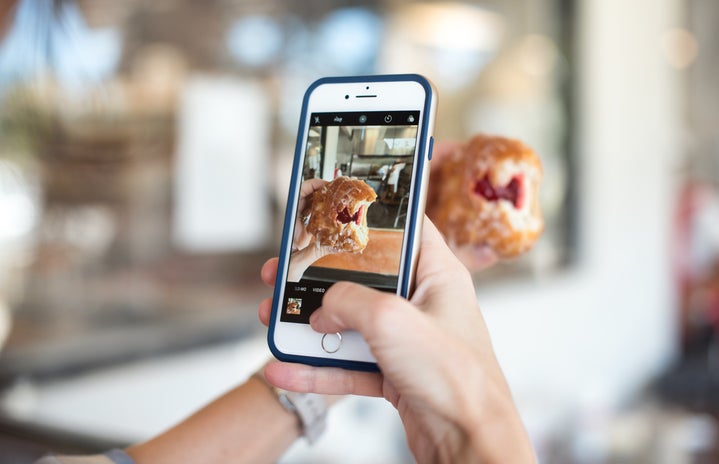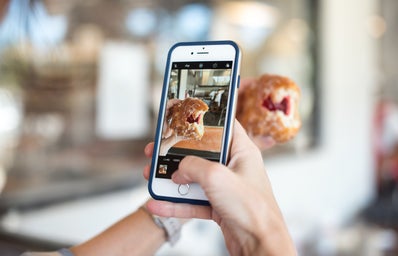What does it mean to be somebody? It used to mean people recognizing you in person and wanting to talk to you. Now… What does it mean? Is it based on how many followers you have, how many likes you receive on a selfie, your following to follower ratio? Now it’s about social media. Did someone you meet in class find and follow you on Twitter? That’s how you know you got their attention. Did your crush like your photo on Instagram even though it was only a picture of your gluten-free, vegan salad? Well, these days, that’s impressive.
Recently it’s become about being connected all the time. It isn’t enough to see someone once, twice, three times a week in a class. They have to “follow” your every move, know everything about your life and need to understand your love for hot yoga. We then ask ourselves, “Why?”
Sadly, our world isn’t about face-to-face anymore. It’s over the Internet, through wires and cables. It’s about observing, comparing and envying the life others create on social media. Yet no one knows how much of that is even real anymore. It’s all skin – or pixel – deep.
I’ve seen the “I want to delete all my social media” tweets. I empathize because I too want to rid myself of the burden of social media. I wish I could delete them all and live in the real world, where I won’t be jealous of others’ lives that seem so perfect through distortion or filters on social media. I don’t live in their life, I don’t even physically see them doing those activities (i.e. eating those salads, doing that hot yoga), nor do I see the weight they may carry over their parents’ divorce or the scholarship they have to have. I want to live in the real world with face-to-face interaction, smiles instead of likes and people who care enough to check in on me through more than just a few taps on a screen.
Unfortunately, I can’t do that because that’s not the world I live in anymore. Even if I didn’t use social media to advertise my “perfect” life, I’d still have to use it for communication and information with clubs about meetings and events. Even if I did – and I do – use it for more than those reasons, there’s nothing wrong with that. It’s the norm nowadays. “Did you see this Vine,” “I saw this on Twitter” or “He liked her photo, how could he?!” are almost daily in-person conversation pieces. I’d feel quite left out if I didn’t know what anyone was talking about or didn’t have my own complaint to spill.
All of this begs the question: Can you be someone without social media? You can if you don’t mind being left out of conversations or missing out on information. You can if you are able to survive without the constant pull and tug for attention that social media provides us. You can if you allow yourself to be happy with sharing the details of your life with only those you are close to. Maybe we’d be healthier this way, less prone to our generation’s issues with anxiety, perfection, envy and attention. We may find more substantial and more fulfilling friendships, conversations, relationships and experiences.
Ultimately, that’s not the world we live in. We network, communicate, lust for more and are consumed by envy. There’s really no way to avoid it without facing some sort of isolation, and humans tend to be social beings. There are benefits to society and benefits to social media. We are only humans who want to be loved and who want attention. But if you can do it — if you can live without social media — I envy you. I envy you for being happy without society’s confirmation that you are “somebody.”


